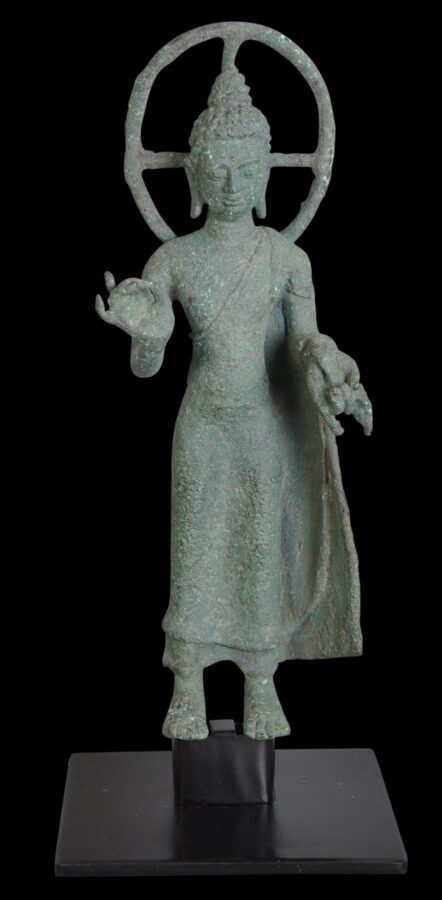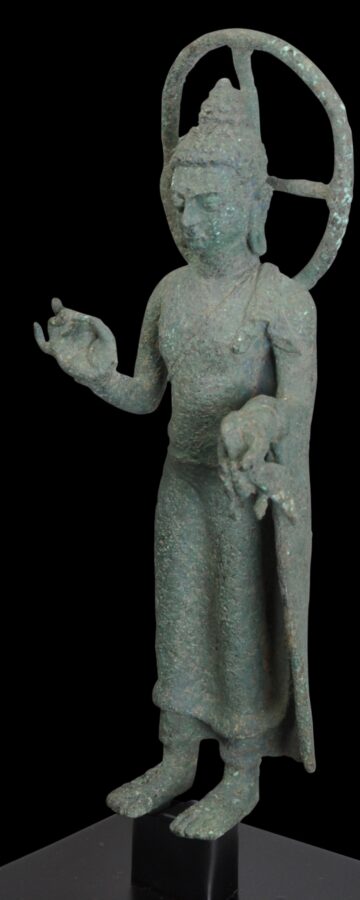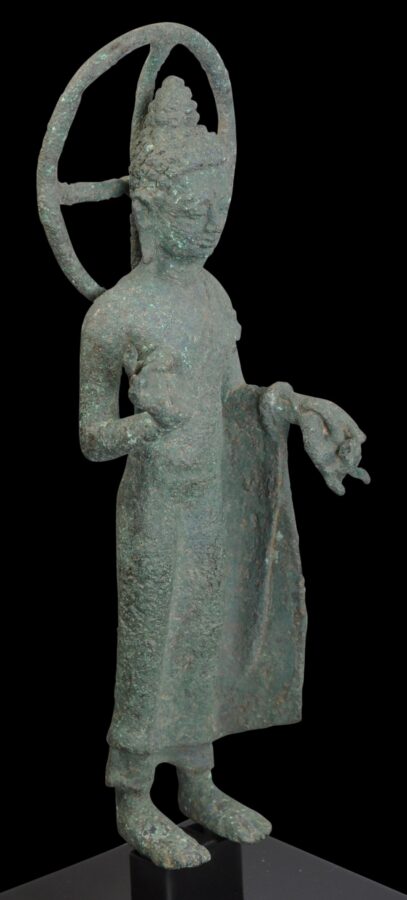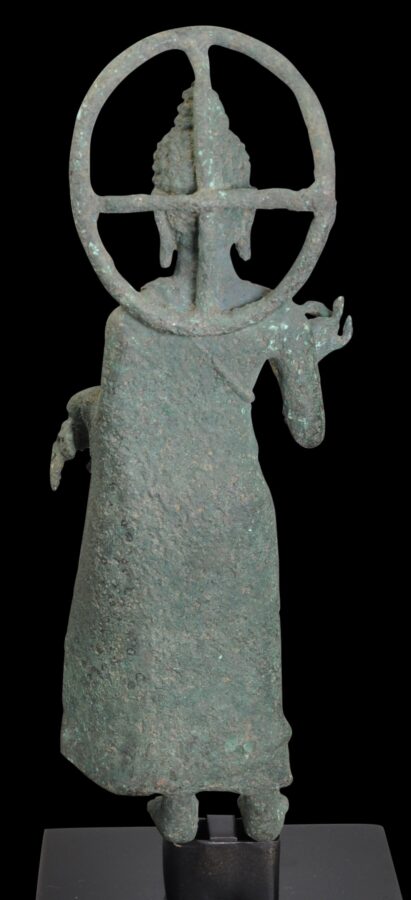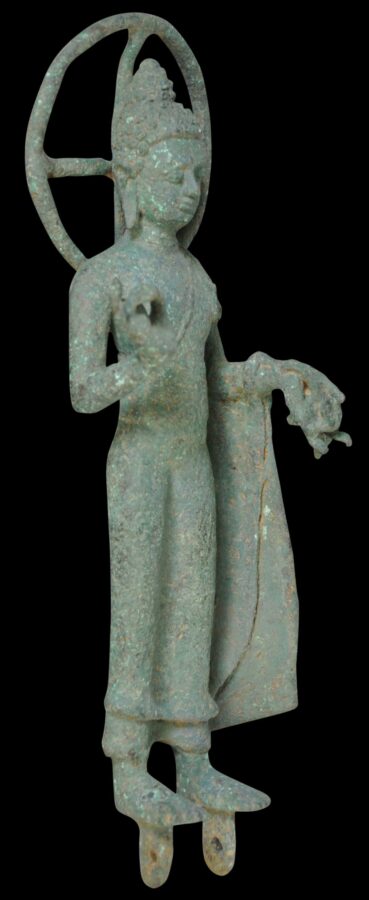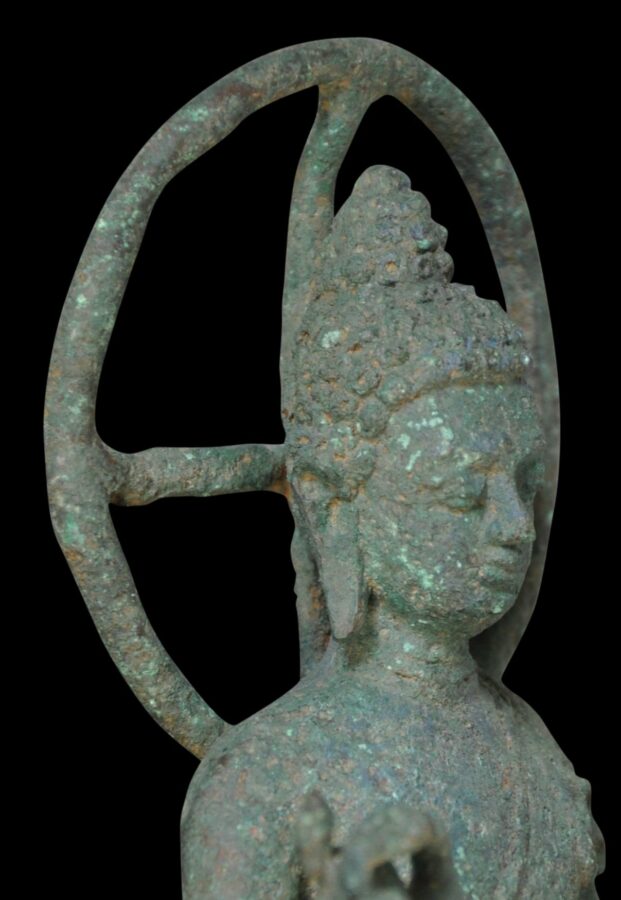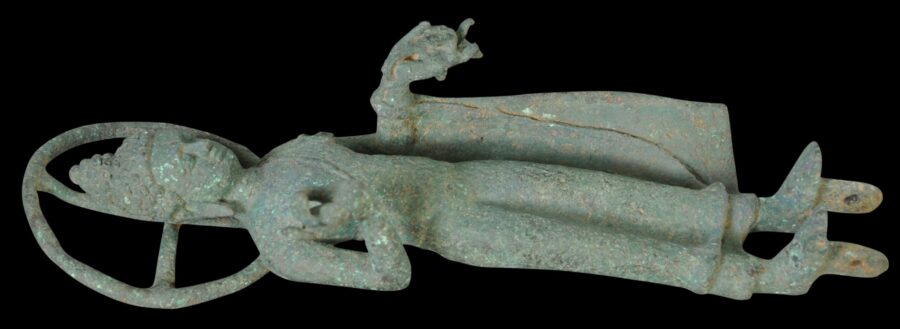This cast bronze standing Buddha is most probably from the early Malay kingdom of Srivijaya which was based in southern Sumatra between the 7th and 12th centuries. It is based on Indian examples but has localised elements.
The Buddha stands upright. A prominent halo with vertical and horizontal crossbars is attached to the upper part of the back and the back of the head.
With his right hand, the Buddha makes the gesture of teaching (vitarkamudra). And with his left, he holds one end of his robe.
The styling of the robes with their apparent thinness, and the prominent halo are Southeast Asian in nature. The right shoulder is left bare. The thick hemline robe or undergarment forms a straight line in front of the legs and is then drawn up over the left hand.
The over-sized hands and feel are characteristic of Srivijaya bronze Buddhas of the period.
The finely-rendered, broad face, the slim body. and the prominent curls of the hair suggest Gupta influence from northern India. The ears are elongated in the manner of a prince, and there is a tiered usnisha on the tope of the head.
The soles of the feet have been cast with lugs to allow the statue to be fixed to a base.
A related example with a halo in the Rijksmuseum, is dated to 600-800 AD. This example is also illustrated in Lunsingh Scheurleer & Klokke (1988, p. 107).
The example here has an encrusted green-grey patina. It sits on a custom-made, black metal stand.
Read our short essay about Srivijaya bronzes.
References
Guy, J., Lost Kingdoms: Hindu Buddhist Sculpture of Early Southeast Asia, Metropolitan Museum of Art, 2014.
Hardiati, E.S. & P. ter Keurs (eds.), Indonesia: The Discovery of the Past, KIT Publishers for De Nieuwe Kerk, Amsterdam, 2005.
Lunsingh Scheurleer, P., & M.J. Klokke, Ancient Indonesian Bronzes: A Catalogue of the Exhibition in the Rijksmuseum Amsterdam with a General Introduction, E.J. Brill, 1988.


